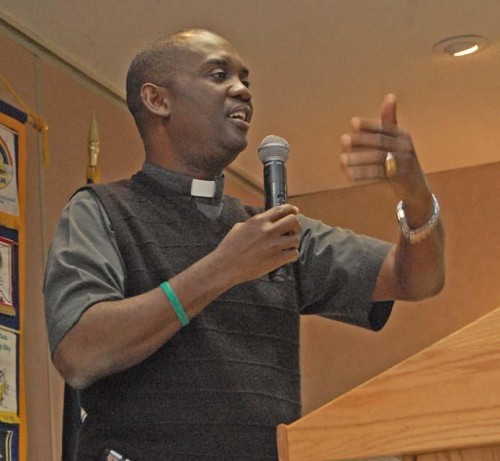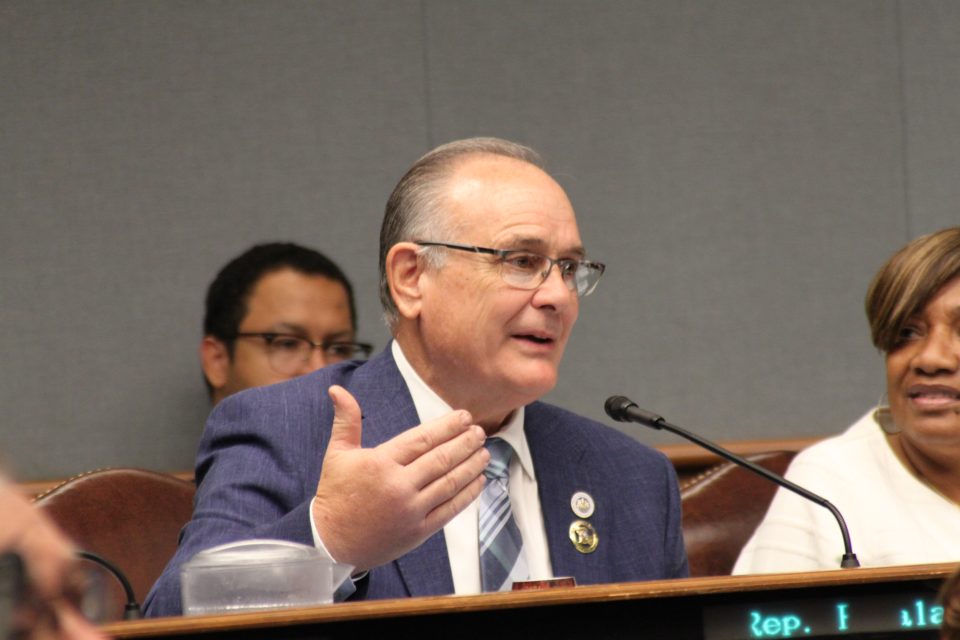Irvin Brunet Jr.
March 1, 2010The new face of America – will our freedoms survive?
March 3, 2010The earthquake may be over for Haiti, but the storm is just beginning. Devastating effects of the event that shook the area on Jan. 12 are beginning to emerge from rubble found across the country.
The Rev. Jomanus Eustache, a priest from the Haitian city of Jeremie, spoke to local Rotarians at a routine meeting last Wednesday about the problems the nation is facing. Jeremie is in Our Lady of the Assumption Parish in a region of Haiti called Grand’Anse, about 100 miles from the nation’s capital of Port-au-Prince.
Along with a flood of difficulties caused by an overwhelming amount of death and destruction, the small village is facing threats of overcrowding and a lack of water and food. About 3,000 people lived in Jeremie before the earthquake struck. But a rush of refugees from neighboring cities – especially Port-au-Prince – has caused the population to double, putting a strain on the village’s infrastructure.
“The situation before the earthquake was bad, now it is worse,” explained Eustache. “Food is impossible to find.”
And as far as education goes, schools are busting at the seams. “We need more rooms, books, and furniture,” he noted.
Even with the grim outlook, locals are lining up to help out.
Haiti Mission Inc., a non-profit group based in Shreveport, has been working with officials in Jeremie for nearly 10 years. Bringing potable water to the area is the foundation’s main initiative, but it can also take credit for the construction of three schools, all of which were built to withstand the rigors of natural disasters like earthquakes, said the group’s founder Lloyd Duplantis.
“It’s been a long process of finding out the most effective things to help the village,” he said. “We build things that are meant to last; brick and mortar.”
The Rotary Club of Houma sponsored a water well that was built just before the earthquake. Despite the wreckage, the well remained unscathed and is struggling to keep pace with an increasing number of residents. However, things are starting to look better.
The addition of drilling equipment to the region has made the group’s job a little easier, allowing them to not only install more wells quickly, but train Haitian’s on the practice so they can do it themselves, explained Duplantis.
“We’re not only building wells in the country, but also acting as consultants to other people who want to do it,” he said.
About 12 wells have already been built in Jeremie and it’s outlying areas since the establishment of Haiti Mission in 2000. The non-profit will begin constructing more wells in March, along with a variety of poultry projects that will provide the village’s people with more food, according to Duplantis, who added that eggs can greatly reduce malnutrition in the region.
Eustache ended the presentation with a positive outlook for a country wrenched in heartache. The priest also told listeners the best way to help the region is by donating money, which will help boost the local economy.
“Whatever you have done and whatever you can do, continue to do it because you will save a lot of people,” he said. “It’s soladarity in humanity that you are showing and it reminds me that we are one, human beings, we are one.”
Father Jomanus Eustache, a priest from the Haitian city of Jeremie, speaks to the Rotary Club of Houma about the condition of Haiti following a devastating earthquake in January. * Photo by MICHAEL DAVIS








